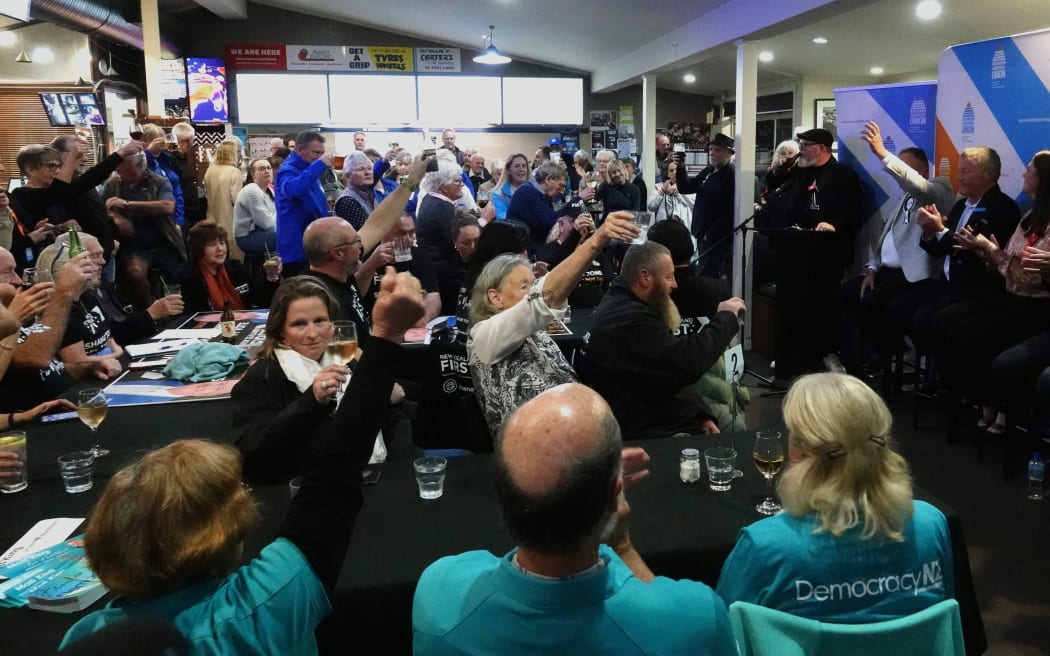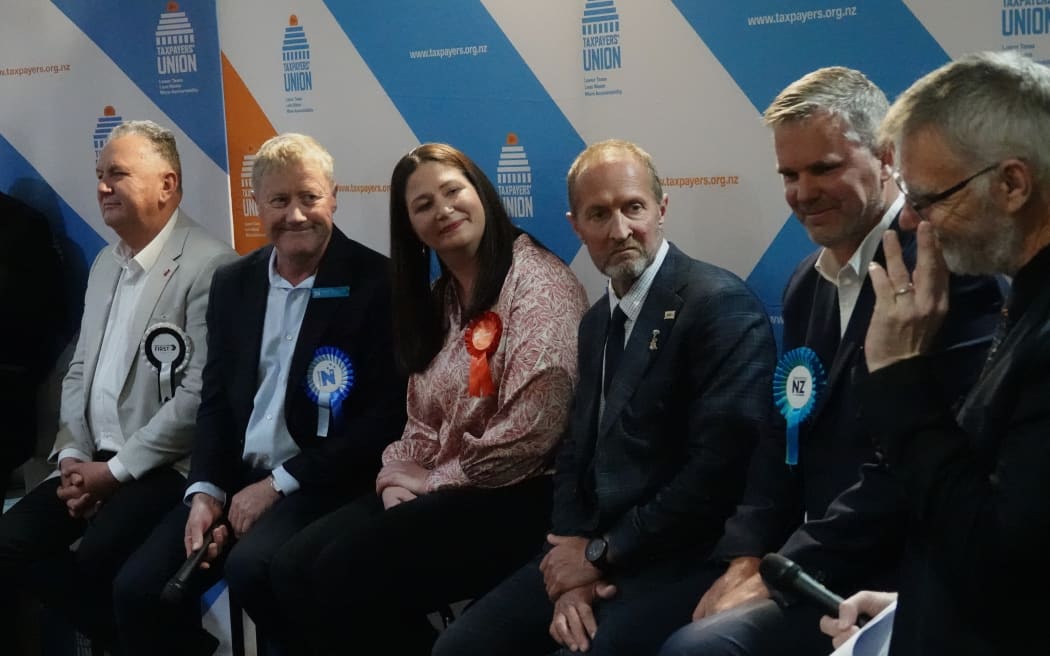Northland MP Willow-Jean Prime walked into the lion’s den when she took part in an election debate in Kerikeri last night.
The traditionally blue seat is currently held by Labour — the election of 2020 was the first time it had been won by the left since 1938 — but polls suggest that won’t last much longer.
Five candidates took part in the live-streamed debate at the Homestead Tavern organised by right-wing lobby group the Taxpayers’ Union.
With a partisan audience and The Daily Blog editor/publisher Martyn “Bomber” Bradbury and libertarian Damien Grant as MCs — political commentators from opposite ends of the political spectrum — it was a rollicking, raucous ride, sometimes rude but never dull.
For Prime it was a foray into hostile territory with the Labour MP all but drowned out by shouts and jeers.
She had little chance to defend her party’s record or set out her priorities above the din.
The loudest reaction came after mention of the C word — that’s covid, of course.
Covid response ‘saved lives’
Prime defended the government’s response, saying it was one of the best in the world and had saved lives, but acknowledged some in the room did not agree with her.

There were angry shouts from some in the near-capacity crowd anytime she used a word in te reo Māori, such as Aotearoa or puku [belly].
The other candidates received a warmer reception, with Matt King — the former Northland MP who quit National and set up DemocracyNZ in protest at the party’s covid policy — having the loudest supporters.
New Zealand First candidate Shane Jones continued his campaign theme of describing himself as the politician who delivered for Northland when he held the purse strings for the Provincial Growth Fund.
He also said it was time Northlanders broke their habit of electing lions, only to find they turned into lambs as soon as they took their place in Parliament.
Jones promised a “laser-like focus” on Northland’s infrastructure deficit, especially when it came to roads, rail and shipping.

‘Squeezed middle’
National candidate Grant McCallum, a Maungaturoto farmer who won the party’s selection process to replace King, also promised a laser-like focus — but in his case it would be on costs and the “squeezed middle”.
He said middle New Zealanders had been hard hit by rising prices and interest rates.
King was initially denied a place in the debate, raising the prospect of a protest outside the venue by his supporters, with the Taxpayers’ Union saying he did not meet the criteria.
Those criteria included being a sitting MP or polling at least 5 percent in the electorate.
King was told on Monday he could join the debate after all because the weekend’s Taxpayers’ Union-Curia poll put his support in Northland at 5 percent, once undecided voters were excluded.
King promised to “fight back for farmers” against what he called a “climate change catastrophist narrative”.
ACT list MP Mark Cameron, meanwhile, just wanted less government, saying New Zealanders should be left alone to do what they did best.
Gun register dismissed
He was questioned by MC Martyn Bradbury about ACT’s plans to reverse a ban on high-calibre semi-automatic weapons, which Cameron did not address — but he did say bringing in a gun register had not worked overseas and would not work in New Zealand.
Between the serious politicking there was also plenty of humour.
When New Zealand First was accused of being less interested in real issues than in culture-war talking points such as the use of public toilets by transgender women, MC Damien Grant asked — with some trepidation — how Jones defined a woman.
“Matua Shane Jones has 19 mokopuna [grandchildren],” Jones replied.
“And he has his beautiful wife sitting right in front. Bro, that’s a woman.”
The last word went to Prime, who warned the crowd a change of government would lead to cuts in basic services.
It is not clear, however, if anyone heard her above the jeers.
‘Lot at stake in election’
“There is a lot at stake in this election, and I implore you all, to ask the questions and do the research,” Prime said.
Earlier in the evening, the organisers released the results of a Taxpayers’ Union-Curia poll conducted in the Northland electorate the previous weekend.
The poll showed McCallum had 43 percent of the electorate vote, followed by Prime on 18 percent and Jones on 13 percent.
Both King and the Greens’ Reina Tuai Penney, who did not take part in the debate, had 4 percent support with Cameron trailing on 2 percent.
However, the poll had a relatively small sample size of 400 and a margin of error of almost 5 percent.
The proportion of respondents who had not made up their minds was 11 percent. If they were excluded, McCallum’s share of the vote jumped to 49 percent.
The poll showed broadly similar trends when it came to the party vote, although personal support for Jones (13 percent) was much higher than support for his party overall in Northland (3 percent).
Situation reversed
The situation was reversed for Cameron who had just 2 percent support as a candidate while his party, ACT, polled 12 percent.
Cameron has, however, been campaigning for the party vote only and suggesting his supporters give their electorate votes to McCallum.
Respondents were asked what they believed was the most important issue facing Northland.
Unsurprisingly, given the state of the region’s transport network, 36 percent opted for roads, followed by the cost of living on 15 percent, health on 14 percent and law and order on 8 percent.
This article is republished under a community partnership agreement with RNZ.
Article by AsiaPacificReport.nz







